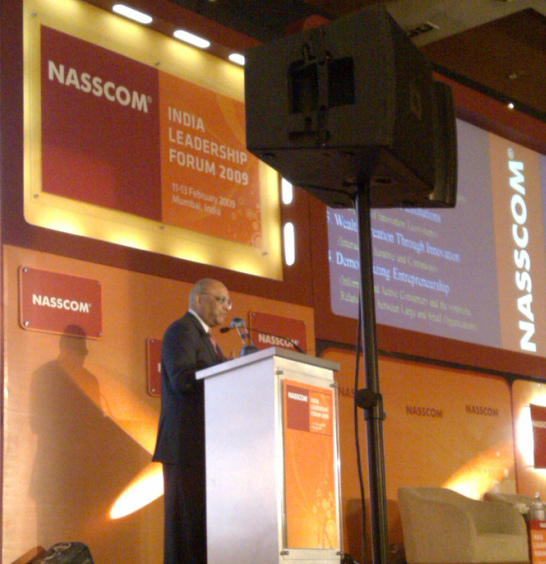Prahalad: The brains behind the outsourcing boom

The academic who changed the way you work
More technologists should be aware of the debt IT owes to C K Prahalad, the academic whose theories reshaped the way companies do business, says Mark Kobayashi-Hillary.
Two weeks ago, professor C K Prahalad died after a short illness. If you have never formally studied management or business administration, then you might not have even heard of him, but if you have a job - especially in IT - then you probably know about some of his ideas.
Prahalad was born in India but lectured in corporate strategy at the University of Michigan since the 1970s. He taught management guru Gary Hamel, then a doctoral student, in the 1980s. Originally the pair clashed and disagreed frequently. But they published an article together in the Harvard Business Review in 1990 entitled The Core Competence of the Corporation.
In 1994, this article was developed into a book titled Competing for the Future. The heart of the book focuses on the theory of core competence. This is the idea that a company performs many functions. Some are visible to customers and directly influence the competitive advantage of the firm in the market it operates in, while others are hidden below the surface, such as human resources, IT, finance, marketing and accounts - the functions every firm needs just to keep the lights on.
Core-competence theory advocates that the chief of the company should identify those functions or actions that are actually improving its competitive position: what is it that the organisation is doing that the competition cannot easily copy? Then, once those particular skills are identified, the rest of the company functions should be contracted out. That means outsourced to experts.

C K Prahalad speaking at the Nasscom conference in 2009
(Photo credit: markhillary via Flickr under the following Creative Commons Licence
For example, if managing your payroll is not going to differentiate you from your main rival then why are you spending time doing it? Every firm has to have a payroll but there are payroll experts out there to take the task off your hands, leaving your company more focused on doing the things that really do make a difference.
It sounds obvious today, doesn't it? Look around at the IT industry and just about every big services firm is doing technology development, support, maintenance, or operations for clients who don't consider that managing technology is a core competence of their firm.
Outsourcing, contracting out, or facilities management had all been written about and examined before Prahalad described the theory of core competence, but no one had ever enunciated such a unified theory of how a company should be structured for maximum performance.
I had the pleasure of meeting Prahalad in 2009, when I attended a lecture he gave in Mumbai on one of his other big ideas - the fortune at the bottom of the pyramid. He saw this as a pragmatic method of helping the poorest people in the world by changing the way large companies target them with goods and services.
This humble and softly spoken academic had one major idea that reshaped the way all major companies do business - especially in our sector, technology. His other major idea is gathering momentum and could one day improve life for billions of people. They broke the mould when this academic came into the world.
Mark Kobayashi-Hillary is the author of Who Moved my Job? and Global Services. He lectures at London South Bank University.